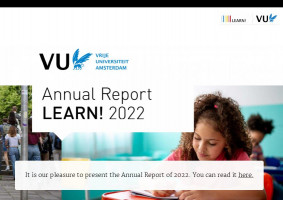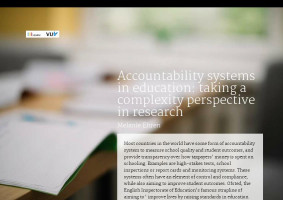The Dutch Minister for Primary and Secondary Education, Dennis Wiersma, issued a proposal this month to limit the number of temporary employees in education. The idea behind the proposal is to make the teaching profession more attractive, which should help solve the major teacher shortage. But what about teachers who prefer working on a temporary basis?
It was early May when Wiersma issued his proposal, which states that schools should employ at least 80 percent of their staff on a permanent basis. In addition, they may spend a maximum of 5 percent of their personnel budget on hiring self-employed teachers, or teachers employed by a temporary employment or secondment agency.
At present, an estimated 3,000 teachers work in primary education on a flexible contract. In secondary education, the number is similar. These teachers a hired through a secondment agency or temporary employment agency. In addition, more than 2,400 teachers are registered as 'self-employed teachers' in the Trade Register of the Chamber of Commerce. Although there is an upward trend in the number of so-called ‘private practice teachers’, this is still a relatively small number.
A more important question is what motivates this group of teachers to opt for a flexible contract. After all, in the current labor market they would have a sufficient chance of obtaining a permanent contract.
Recent interviews with teachers show that teachers’ motivations are partly related to the content of the work and what they consider important about being a teacher. They want to be able to focus on teaching instead of taking part in meetings, excessive grading or performing administrative tasks and also want to be able to give more individual attention to students. In their view, a temporary, flexible contract offers better opportunities to do this.
A high workload, large classes and administrative burdens all distract and prevent them from focusing on what they consider their primary task: teaching in the classroom and contributing to the development of their students.
Restricting temporary and flexible contracts may exacerbate the teacher shortage: school boards will then no longer be able to respond flexibly to fluctuating numbers of pupils, nor use temporary funds, and the group of teachers who consciously opt for a flexible contract with adapted working might choose a career outside of education.
If we want to make the teaching profession more attractive, we must listen to what teachers themselves want: to practice their profession well, in the classroom.

(2)_w400_h440_1.jpg)
MARJOLEIN CAMPHUIJSEN
Assistant Professor
Faculty of Behavioural and Movement Sciences
Vrije Universiteit Amsterdam
PROF.DR MELANIE EHREN
Professor in Educational Governance
Director of Research Institute LEARN!
Vrije Universiteit Amsterdam
Honorary Professor
University College London

















